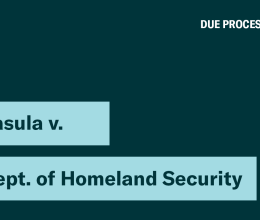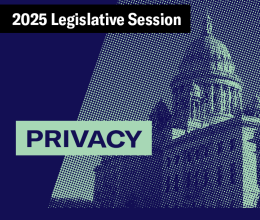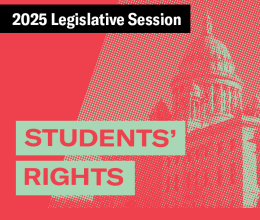Calling the technology “expensive, ineffective, inefficient and intrusive of civil liberties,” the Rhode Island ACLU today issued a report criticizing legislative efforts to make permanent a three-year experiment allowing municipalities to use “red light cameras.” The 19-page report argues that “no compelling rationale has been offered for allowing for the continued use of red light cameras in the state.”
Because of legislative concerns about the technology, the 2005 law authorizing use of the cameras contained a July 2008 sunset clause. Thus far, Providence is the only municipality to have made use of the law, and it has sought repeal of the sunset provision. “Red light cameras” are devices that photograph automobiles going through red lights and then send automated citations to the registered owner or lessee of the vehicle photographed.
In arguing that it would be a mistake for the state to repeal the sunset clause, the ACLU report relies largely on data supplied by the City of Providence itself, stating that:
- Although initially touted by the City as a revenue-enhancing measure, Providence thus far has actually lost almost a million dollars in this enterprise – making money for the private company running the technology, while the taxpayers foot the bill.
- Data submitted by the City fail to document that the cameras have reduced the number of crashes at intersections where the technology has been employed.
- Although the 2005 statute required the City to submit annual reports designed to help policy-makers reach an informed conclusion about the cameras’ utility, the City’s reports are filled with inconsistencies and inaccuracies. The City has also failed to separately submit related data and reports to the Providence City Council as required by city ordinance.
- Fewer than half of the alleged violations photographed by the cameras result in the issuance of citations.
- The use of red light camera technology continues to raise significant due process, privacy and other civil liberties concerns.
In light of the fact that the technology has not made Providence any money, has not been demonstrated to reduce crashes or injuries at the intersections where the cameras have been installed, and has been implemented by the City without adequately complying with state and city reporting standards, the ACLU report argues that “such failures should not be rewarded, especially in light of the civil liberties incursions implicit in the implementation of a red light camera system.” The ACLU’s report, “The Case Against Red Light Cameras,” is available online at www.riaclu.org.






